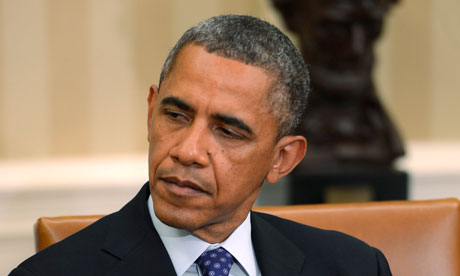
South Korea's government has expressed "concerns" about the Barack Obama administration's last-minute reversal of a trade ban against Apple's iPhone 4 and 3G-capable iPad 2 – amid the threat that a similar ban on Samsung products will be implemented on Friday.
The block on the iPhone ban, which Samsung had won from the US-based International Trade Commission (ITC), was the first time the president has vetoed an ITC ban since 1987, when President Ronald Reagan ruled in favour of the import of Samsung memory chips against US rivals.
"We express concerns about the negative impact that such a decision would have on the protection of patent rights," Reuters quoted the Ministry of Trade, Industry & Energy saying in a statement.
The ministry also called on the US to make "fair and reasonable decisions" on upcoming patents.
But Samsung's ban seems to have been overturned because it tried to use its ownership of a standards-essential patent (SEP) for 3G systems to force Apple to license it a non-essential patent relating to its interface software.
Read also: Apple, Samsung, Google and the smartphone patents wars - everything you need to know
US trade representative Michael Forman explained in a letter that he "strongly share[s]" concerns expressed earlier this year by the US Patents and Trademark Office (USPTO) that owners of SEPs which had volunteered to license them on "fair, reasonable and non-discriminatory" (FRAND) terms were instead using those SEPs for "patent hold-up" – that is, demanding a higher price for use of the patent than it would get if it had not been incorporated into a standard.
Many SEPs are low-level algorithms which have little inherent value, but are needed to make a standard effective. Wi-Fi and 3G rely on thousands of patents, whose owners have volunteered to license them on FRAND terms which often amount to fractions of a penny per device.
Non-essential patents –such as the way interface software works – do not have to be licensed, or the owner can license them on its own terms. Samsung faces a final decision on Friday over a trade ban demanded by Apple on a number of Samsung phones and tablets, including its two-year-old Galaxy S2 phone and Galaxy Tab 10.1 tablet.
Samsung said of the Obama veto that: "We are disappointed that the US Trade Representative has decided to set aside the exclusion order issued by the ITC. The ITC's decision correctly recognised that Samsung has been negotiating in good faith and that Apple remains unwilling to take a licence."
Apple said in a statement: "We applaud the [Obama] administration for standing up for innovation in this landmark case. Samsung was wrong to abuse the patent system in this way."
Samsung's apparent demand that Apple license non-essential patents to it in return for an SEP licence emerges from the dissenting opinion by one of the ITC judges in the case. Dean Pinkert wrote that "it is neither fair nor non-discriminatory for the holder of the FRAND-encumbered patent to require licenses to non-FRAND-encumbered patents as a condition for licensing its patent."
That suggests that Samsung was trying to use its leverage in SEPs to force Apple to license other non-essential patents.
The European Commission issued a Statement of Objections to Samsung last December over its use of SEPs in court cases. That led Samsung to abruptly drop a number of court cases against Apple in which it was asserting SEPs.
"Historically, it is almost unheard of for the White House to veto an ITC imposed injunction and I did not expect it to in this case," commented Richard Windsor, who runs the RadioFreeMobile consultancy, whose clients include large handset makers (though not Apple).
"I am certain that Samsung will be screaming that the White House has been biased in favour of an American company but the White House has a good reason: Samsung sought and won injunctive relief on the back of standard essential patents."
Apple and Samsung have been locked in a series of bitter patent battles around the world. One of the largest in the US last year saw Apple awarded damages of $1.05bn (£907m) for infringement by Samsung of a number of its non-essential patents and "design patents" relating to the close resemblance of some Samsung phones to the iPhone 3GS. About $400m of that award was vacated, and will be reconsidered by a jury later this month.
In the original trial, Samsung asserted that Apple had infringed a number of its SEPs. But the jury did not agree, deciding that Apple in effect had a licence through one of its chip suppliers.

